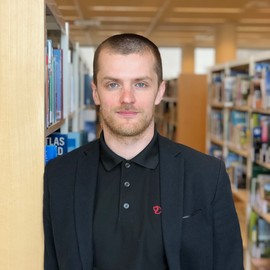Heros at humanitarian networks and partnerships week
Mikhail Sirenko from the Resilience lab was one of the presenters at the Humanitarian Networks and Partnerships Weeks last week.
On May 10, The HERoS project held a briefing session as part of Humanitarian Networks and Partnerships Weeks – an event organised by United Nations Office for the Coordination of Humanitarian Affairs – to present research findings of the past year. He specifically looked at the question:
"Do we need to violate people’s privacy to build better models and predictions?"
Predictive analytics and anticipatory action are becoming increasingly popular in humanitarian emergencies. The underlying models have to be precise to be useful. In a disease outbreak, precision refers to how well a model can estimate the number of infections and explain the causes behind a potential increase or a decrease. A popular approach in building precise models is to use sensitive data from mobile phones or so-called microdata, which has individual records about age, place of work, etc. Such an approach is especially problematic in humanitarian contexts, as privacy violations may put people’s safety and well-being at risk. In addition, in humanitarian contexts, microdata is often just not available. While using a mobile phone or microdata for the common good is an ongoing and open debate, in this talk, Mikhail Sirenko aimed to explore to what extent its use is required to build a precise model and what alternative approaches can offer.
During this session, he presented the main elements of the methodology and drew some preliminary insights based on it.
